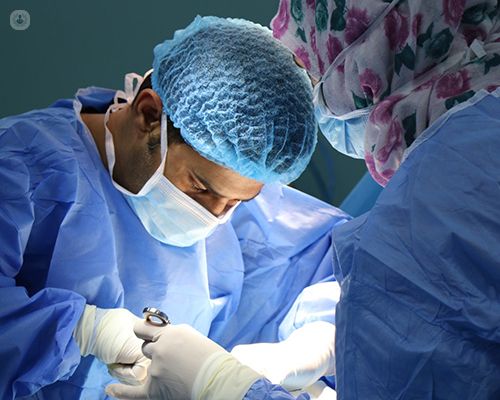How does a specialist manage gallbladder surgery?
Autore:The prevalence of gallstones is about 10-20% in the UK population and quite a lot of patients have asymptomatic gallstones. In about 10-25% of this group, gallstones will become symptomatic over a period of time. There is evidence that even in asymptomatic patients if they have haemolytic syndrome (which affects blood and blood vessels) or bile duct stones, we should offer them the surgical removal of the gallbladder (cholecystectomy).
However, there is no evidence for the removal of the gallbladder in other groups of asymptomatic patients. Large gallstones greater than 3cm can increase the risk of gallbladder cancer. Gallbladder packed with stones and calcified gallbladder are also risk factors for gallbladder malignancy.

Manchester-based surgeon Mr Thomas Satyadas explains how gallstones are removed, why some gallbladder operations can be difficult to perform and the importance of needing an experienced specialist in surgery.
How are gallstones treated surgically?
The gold standard treatment for symptomatic gallstones is laparoscopic cholecystectomy (keyhole surgery), where four keyholes are used to perform this operation. The camera is placed through one keyhole in the belly button region and another three are used for instrumentation. The keyholes are 1cm or less in size and on completion of the operation are sutured with dissolving sutures and glue is applied in my practice. As there are no dressings this allows the patient to have a bath or shower in the days after the operation.
What is the importance of carrying out cholangiogram before surgery?
I would also recommend performing cholangiogram (an X-ray of the bile ducts) at the time of surgery to rule out the possibility of bile duct stones and also to identify any injury at the time of surgery. Bile duct injury is one of the major risk factors associated with this operation and fortunately it is very rare and happens only in 0.1 to 0.3 % of cases.
Why can gallbladder surgery be challenging?
Some gallbladder operations can be quite difficult to perform because of the extensive inflammation, the abdominal tissues are quite close to each other and also the anatomy in the region of the gall bladder can quite distorted. This could make the operation very difficult and the risk of complication could be high unless the right judgement is made about the operative strategy and technique. That is why it is extremely important to have the operation performed by a specialist who has extensive experience in gallbladder surgery.


